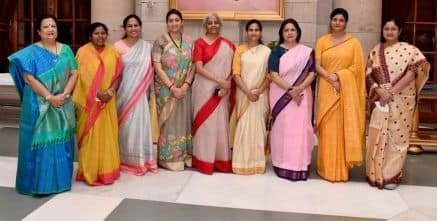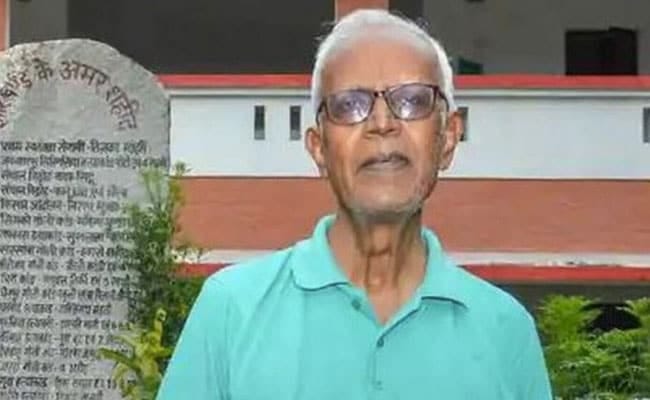Hello
Hope you had an amazing week. Today we talk about a new move by the Government of India, the demise of Father Stan Swami and his journey, along with recent research highlighting growing stress levels among men.
The Big Reshuffle- Who’s in? Who's out? And what’s new?
The brand new cabinet has been a hot topic of discussion as 43 newly chosen ministers took oath at the Rashtrapati Bhawan (President’s House).
The addition of 36 new ministers minus the 12 ministers who resigned brought things to an interesting turn.
Out of those 12 ministers, Dr Harsh Vardhan, Ravi Shankar Prasad, Prakash Javadekar and Ramesh Pokhriyal were in limelight due to multiple reasons like- pandemic handling, relations with social media giants and communication-related decisions on changing dynamics in the education arena, respectively.
Key points that made this decision interesting:
Women in the Cabinet: 11 of 77 ministers are women, though the number is less, its highest since 2004.
Younger Cabinet: There are 14 ministers below the age of 50, including six who have been chosen as Cabinet ministers.
The New Addition: The Ministry of Cooperation has been created to follow the vision of 'sahkar se samriddhi' (prosperity through cooperation).
The objective is to provide :
An administrative, legal and policy framework for strengthening the cooperative movements.
To develop multi-state cooperatives (MSCS) by streamlining the process of ‘ease of doing business.
The diversity: The Cabinet has a record of:
27 ministers: Other Backward Castes (5 in the Cabinet)
12 ministers: Scheduled Castes (SC).
8 ministers: Scheduled Tribes.
Experience and education takes a lead?: The Cabinet includes leaders with expertise ranging from lawyers, doctors, engineers and civil servants, MBA and Graduate degree holders.
The other factors which the Union Government focused on are:
The government included ministerial and cabinet berths from the states like Uttar Pradesh, Uttarakhand, Manipur and Gujarat to increase their representation in the upcoming state elections.
The Union Government, to make the odds in their favour has tried to increase their representation in the states like West Bengal and Maharashtra.
(Sources: Indian Express, DNA, TOI, The Hindu)
Father Stan Swami
The name Father Stan Swamy has been in the news and on social media platforms, since 5th July 2021. Now, who is he?
Stan Lourduswamy or Father Stan Swamy was a Jesuit priest and a tribal rights activist from Jharkhand who died on 5th July in jail. It was the day when his interim bail plea was scheduled to be heard.
The pleas were regarding:
He was suffering from Parkinson's disease and had pleaded for bail on medical grounds, which was rejected multiple times.
Another plea challenged section 45D(3) of the Unlawful Activities (Prevention) Act, which imposes a stringent bar on the grant of bail to the accused charged with the Act.
In the backdrop
The Elgar Parishad- A conclave organized at Pune’s Shaniwarwada Fort on 31st December 2017, in memory of the Bhima Koregaon battle fought on 1st January 1818. Soon after the event, violence broke out on 2nd January 2018. The police claimed that speeches at the Elgar Parishad were responsible for the clashes.
Father Stan Swamy was somehow connected for his links to the Elgar Parishad case in 2018 and was arrested in October 2020 under the UAPA.
Statements on his demise:
United Nations-
The UN body on human rights said it was "deeply saddened" and "disturbed" by the Jesuit priest's death during his pre-trial detention.
Ministry of External Affairs (MEA) spokesperson Arindam Bagchi, responded to the criticism, by saying that, Swamy was detained by the NIA "following due process of law".
Family: “Father Stan Swamy’s death is not natural, but the institutional murder of a gentle soul, committed by an inhuman state. Having spent his life amongst the Adivasis in Jharkhand, fighting for their right to resources and lands, Father Stan did not deserve to die in this manner, far from his beloved Jharkhand, falsely imprisoned by a vindictive state.”
(Sources: NDTV, TOI, The Print, Indian Express)
Work Pressure and Mental Health of Men
As the workspaces are opening up, the conversations around how one can manage stress during work have come up as well. The pandemic has made the work-life balance better for some and topsy-turvy for some. but for some.
A survey by a job site named SCIKEY Market indicates an increase in stress levels at work in 59% of men affected their personal lives.
Some insights:
20 per cent of men feel their workplace is not supportive in comparison to 16 per cent of women.
Over 22 per cent of men have been affected due to job loss and 60 per cent are concerned about their future.
Impact of stress on personal lives: It can be seen in the form of frequent episodes of aggressive mood swings, yelling at loved ones, headaches and physical tension.
How can one overcome these challenges which are contributing to stress?
Employees should be free to control their work schedules.
Breaks should be encouraged.
Create an open and free environment for employees so they can express themselves freely and should be confident enough to ask questions and get the answers for the same.
(Sources: Economic Times)
What else is happening?
Haiti’s President, Jovenel Moïse was assassinated and his wife Martine Moïse got wounded, during an attack on 7th July, at their private residence. It has rocked the nation in shock.
In a study published in The Lancet Planetary Health Journal, nearly 740,000 excess deaths in India yearly can be attributed to abnormally hot and cold temperatures related to climate change.
On 9th July 2021, cases of Zika virus in Kerala went up to the number of 14, along with the National Institute of Virology confirming 13 more cases. The state has been put on alert.
The Delhi court on 8th July said that the Centre is free to act against Twitter for any breach of new IT rules. The court mentioned that Twitter doesn’t enjoy any protection from the court.








